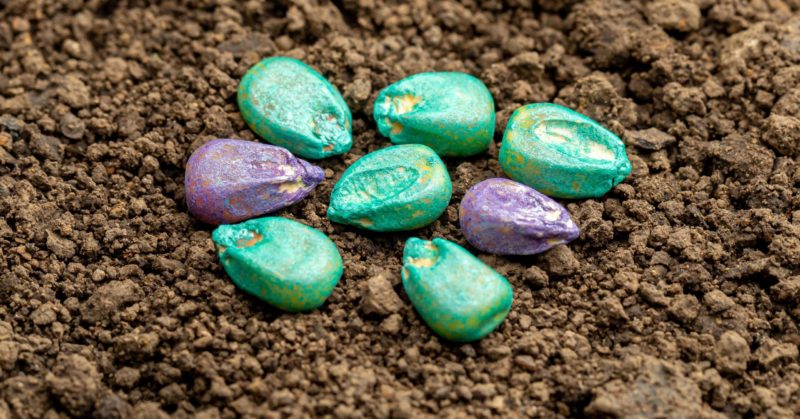180 million acres of crops in the US are planted with seeds that come pre-treated with a coating of pesticides on the seeds. These seeds are often treated with neonicotinoids – a class of pesticides that has been linked with population declines in pollinators and beneficial insects around the world.
But due to a loophole in the federal law that governs pesticides, treated seeds are largely unregulated, and the seed treatment industry operates with minimal federal oversight. This has raised concerns over both the amount of pesticides that are applied via seed treatment as well the disposal of unused treated seeds.

Last year in Nebraska, a plant that made ethanol using pesticide-treated seeds spilled 4 million gallons of toxic wastewater into local rivers resulting in environmental catastrophe. Over a year later, pesticide waste remains at the site and may be leaking into streams and groundwater.
Based on a lawsuit filed by the Center for Food Safety and Pesticide Action Network, EPA is now considering whether to draft regulations for pesticide-treated seeds.
Regulation of pesticide-treated seeds is crucial to protecting water quality and wildlife from the neonicotinoids used in seed treatments. A growing body of research continues to support the evidence that neonicotinoids can affect mammals as well as invertebrates. EPA will be accepting public comments on its decision until August 5, 2022.







